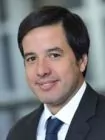In September, Intertrust hosted two panel briefing discussions for Brazil investment funds and private wealth market participants. The panels discussed commercial trends and changes, the impact of key regulatory updates, and economic and legal structuring drivers supporting the use of Cayman, Bahamas, BVI and domestic structures.
Our panel of Intertrust experts from Brazil, the Bahamas, BVI and Cayman Islands were graciously joined by leading Brazilian investment fund and private wealth practitioners. Read on for key takeaways and trends driving international structuring demands for Brazilian high net worth individuals.
Substance and separation of assets
The Brazil tax amnesty is likely to influence demand for simple to very complex structures tailored to specific client requirements. Discussion on corporate investment vehicles confirmed that developing Controlled Foreign Corporations will steer action towards substance and the separation of assets. A clear example of lack of separation of assets is corporate assets being used to cover Beneficial Owners' personal expenses, like credit cards. The panel agreed that funds vehicles possess both substance and separation due to governance and regulation, however, costs are higher− the risks and benefits need to be carefully assessed.
Benefits of trust structures
The panel advocated on behalf of trust structures, though care should be taken when using trust instruments due to a current lack of clarity around Brazilian tax rules. Some benefits of trust instruments include:
- Continuity during disability: Creating a trust is probably the best way of ensuring your property remains available to your benefit should you become physically or mentally incapable of managing your own affairs during your lifetime. Continuity is also possible through a durable Power of Attorney, but third parties such as banks, brokers and transfer agents often have more difficulty in dealing with a power of attorney than with a trust agreement. Considerations were given to having no trust or power of attorney−the panel agreed that an expensive, lengthy and potentially long court proceeding is then required to appoint a guardian, possibly resulting is continued court supervision, before property can be used to benefit either you or your family.
- Flexibility: Trusts allow you to name unrelated individuals or companies to act as the primary administrator of your property upon your death or incapacity. Without a trust, various jurisdictions limit your flexibility. If there are any changes in circumstances, trusts can easily be amended.
- Avoidance of probate: As probate is generally a long and costly legal process, the avoidance of probate is often seen as one of the primary benefits of a trust. For example, having a trust structure and avoiding probate may be a significant benefit if you own real estate in more than one jurisdiction, avoiding multiple probate proceedings.
- Availability of assets upon death: Assets held through a trust upon the Settlor's death are readily available to raise cash to pay estate taxes, administration expense and any debts immediately after the death of the Settlor, without the issuance of any Grant of Probate or Decree.
Administration of estates in the Bahamas & BVI
What are the risks of not creating a Bahamas or BVI will at incorporation? Bahamas and BVI courts are obliged to rely on decisions made in the domicile of the deceased UBO and cannot proceed until such decision is made in that jurisdiction—this process can take years and be extremely contentious, leaving the assets in limbo. With a Bahamas or BVI will, forced heirship rules do not pose an issue as the will would be governed by Bahamian or BVI law in respect of assets in those jurisdictions only.
Preparing a will in a standalone BVI or Bahamas company is advantageous and can avoid the lengthy process of probate in the domicile of the deceased Ultimate Beneficial Owner (UBO). In both jurisdictions, having a will can make securing a Grant of Probate relatively straightforward and prompt, typically in as little as three months.
Creative fund solutions
The panel collectively viewed the Bahamas as an attractive jurisdiction for investment funds due to its allowance of fund administrators to licence investment funds without prior application to the regulator. And the Bahamas does not require the investment manager or advisor to be licensed or regulated.
Bahamas SMART (Specific Mandate Alternative Regulatory Test) Funds are licensed funds subject to a lighter regulatory touch than other licensed funds and are intended for a limited number of investors and/or incubator-type situations where a fund is in the course of raising capital and attracting investors. SMART Funds require no Offering Memorandum and allow the annual audit to be waived. For situations which do not meet the criteria for a SMART Fund, there are "Professional" Funds (available to a limited number of high net worth investors or financial institutions) and "Standard" Funds (suitable for "retail-type" funds with a relatively high number of smaller investors).
All licensed funds in the Bahamas require a minimum of two directors (who need not be Bahamas residents) and, with the exception of certain types of SMART Fund, a Bahamas-licensed Administrator.
In September 2014, the Bahamas became the first common law jurisdiction to create an investment fund vehicle that aligns with the traditional structuring of Brazilian funds. The Bahamas has termed this fund the Investment Condominium or "ICON". Similar to the Brazilian condominium, the ICON possesses no distinct legal personality, which is addressed through the appointment of an administrator that is empowered to transact in its name, and represent and bind the ICON. The ICON's purpose is defined as the contractual relationship subsisting between participants agreeing to the pooling of assets for the purpose of investing those assets collectively. The ICON can be structured and licensed as a SMART Fund, Professional Fund or Standard Fund in The Bahamas. Other types of entities – companies, exempted limited partnerships or unit trusts – may convert to an ICON.
The BVI also offers creative funds solutions suited for private wealth structures such as Approved Funds, which are aimed at managers seeking to establish a low-cost, unsupervised fund for the longer term, but on the basis of a more private investor offering. This category of fund is particularly suited to family offices. There is no minimum investment requirement for investors and an approved fund is not subject to a limited period of operation.
Approved funds are suitable for sophisticated private investors and are limited to a maximum of 20 investors and a maximum fund NAV of USD 100,000,000. An approved fund may, at any time, voluntarily apply to the Commission for recognition as a private or professional fund, and is required to convert into a private or professional fund if it exceeds one of the applicable thresholds over a period of two consecutive months. In addition to Approved Funds, it is also possible to set up more regulated Private Funds which are limited to having no more than 50 investors or on the basis of a private investor offering
The BVI offers more sophisticated regulated funds too, such as Professional and Public Funds as well as lightly regulated Incubator Funds aimed at start-up managers looking for a low-cost option to set up quickly and establish a track record, without having to comply with significant regulatory obligations. Bahamas, BVI or Cayman, all jurisdictions are considered safe and well-regulated.
The content of this article is intended to provide a general guide to the subject matter. Specialist advice should be sought about your specific circumstances.




